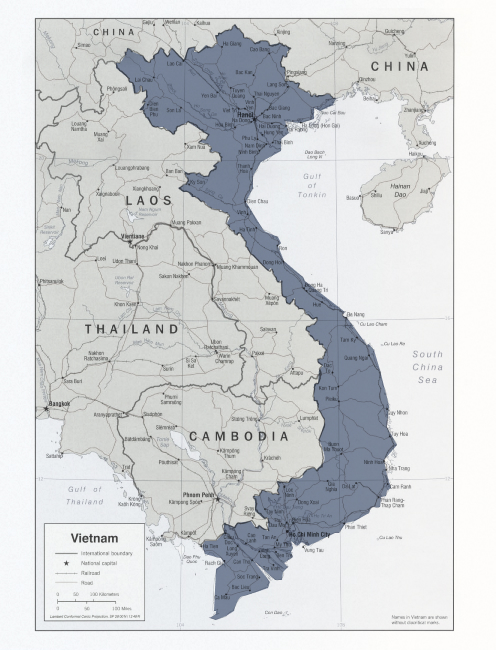Market Spotlight: Vietnam



Vietnam is ranked 70th (of 190) on the World Bank’s Ease of Doing Business Assessment, which reflects emergence as a market leader in Southeast Asia and an even greater part of the global economy. It continues to attract foreign direct investment from companies around the world due to low labor and start-up costs, tax incentives, newly signed free trade agreements, and a growing young and urban consumer population, among others.
Vietnam remained resilient during the global pandemic. The government’s response to healthcare infrastructure needs and access to vaccinations surpassed all global expectations, leading to increased attention for this hot Asian economy.

The Vietnamese are very friendly, which is why they prefer in-person meetings (with a translator available) rather than virtual/online. Pre-COVID, a handshake and a slight bow of the head is the general custom for saying hello and goodbye. When exchanging business cards, do so with both hands and take time to read the card in order to avoid offending your host.
Personal relationships play a significant role in the business culture. It is important to formally greet everyone at a meeting or gathering individually in order of seniority, which is important in Vietnam. The trust developed by relationships with business counterparts is vital in accomplishing deals. Saying “Yes” may merely indicate understanding, rather than an agreement. Deals may require multiple encounters, so it is important for foreigners to remain patient.

Vietnam’s national English literacy rate is modest but growing, with English proficiency ranking 66/112 economies, and 12/24 Asian nations, according to Education First. English speakers are commonly found in major cities, such as Hanoi and Ho Chi Minh, so interpreters are not usually needed for business travelers unless they are exploring rural areas.

Vietnam boasts relatively low labor costs, much lower than other Southeast Asian nations, and China and Mexico. It is also home to a large and well-educated labor force, supported by the government’s efforts to withstand labor shortages of highly skilled workers through training and education programs.

While Vietnam remains a socialist republic led by the Communist Party, it remains one of the most politically stable environments in Southeast Asia. Economic development continues to be a national priority since the country’s shift to a socialist-oriented market economy, similar to China’s economic system.
Business professionals should have a high degree of comfort investing in this market.



